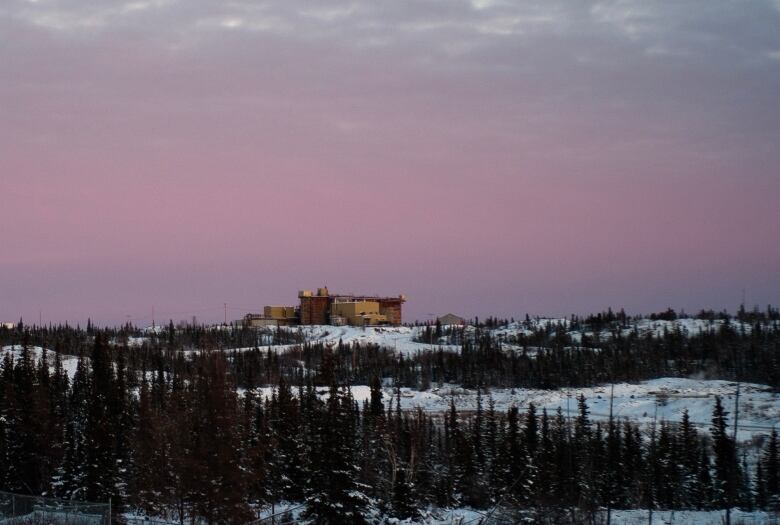Detah woman's story of growing up next to Giant Mine featured in new film
Stacey Drygeese-Sundberg lives across from toxic gold mine site that's featured in Hot Docs film

Stacey Drygeese-Sundberg rode by Yellowknife's Giant Mine every day for four years as she went to and from high school to her home in Detah, N.W.T.
For more than 50 years, the mine was one of the biggest employers in Yellowknife, but it came at a toxic price 237,000 tonnes of arsenic trioxide dust created during the roasting process over the life of the mine.
Drygeese-Sundberg saw that contamination firsthand, with arsenic dust settling in the water and on the land around her home over the decades. She heard about it from elders who told her how it affected the caribou,fishing, and people's health.
Though the Giant Mine site and surrounding area is in the midst of a massive $1-billion remediation, Drygeese-Sundberg wants to make sure that the story is told as widely as possible. Now, it's featured in a new documentary Illusions of Control that just premiered at the Hot Docs festival in Toronto this past weekend.
"Learning about my own story on screen makes it more important," she said. "To educate people about what's happening in the Northwest Territories, in my homeland."

She hopes that the remediation of Giant Mine is successful, with science supported by traditional Indigenous knowledge. Hopefully, she says, that could help bring about some measure of reconciliation between people in Detah and the federal government.
Drygeese-Sundberg is one of several women featured in the documentary, which also examines the aftermath of the nuclear disaster in Fukushima, Japan, and women living through ongoing violence in Mexico.
"Each of the stories are quite different, yet as a whole they all ask us to think about what it means to live in the present in a catastrophic moment," said filmmaker Shannon Walsh, who's been working on Illusions of Control for five years.
"How do we live through it, and how we think about our futures and live in the present?" she said.
'Time after time, things go wrong'
The titleIllusions of Controlis a reference to how industry believes it can control nature and the world around us, yet often projects have a catastrophic effect on the environment,Walsh said.
"Time after time, things go wrong," she said.
For Walsh, hearing Drygeese-Sundberg's story opened her eyes to an issue that is little-known outside of Canada's North.
"It struck me and startled me," Walsh said. "It struck me how the history of holding the legacy and carrying it forward was put on First Nations people in this country and how so much was hidden from view from the rest of the population."
Walsh says she hopes to screen the film in Detahthis summer.
Written by Alex Brockman, based on interview by Loren McGinnis












_(720p).jpg)


 OFFICIAL HD MUSIC VIDEO.jpg)
.jpg)



























































































